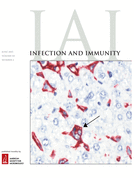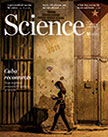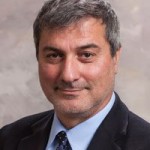 This week saw us profiled in The New York Times and de Volkskrant, and the introduction of our new staff writer. We also launched The Retraction Watch Leaderboard. Here’s what was happening elsewhere: Continue reading Weekend reads: Duplication rampant in cancer research?; meet the data detective; journals behaving badly
This week saw us profiled in The New York Times and de Volkskrant, and the introduction of our new staff writer. We also launched The Retraction Watch Leaderboard. Here’s what was happening elsewhere: Continue reading Weekend reads: Duplication rampant in cancer research?; meet the data detective; journals behaving badly
Category: by author
“Evidence of data duplication” infects lung inflammation paper from Harvard and Yale
 A team of Harvard and Yale biologists have retracted an Infection and Immunity paper due to data duplication.
A team of Harvard and Yale biologists have retracted an Infection and Immunity paper due to data duplication.
After the duplication came to light, the erroneous figures were corrected using original data, but the results affected “some of the manuscript’s conclusions.” An ethics panel subsequently recommended retraction, according to the journal, and the authors agreed.
The paper, “NOD2 Signaling Contributes to Host Defense in the Lungs against Escherichia coli Infection,” analyzed the role of the gene NOD2 in the lung inflammatory response against the bacteria Escherichia coli. It has been cited by 15 other papers, according to Thomson Scientific’s Web of Knowledge.
Figure 2B of the paper was previously corrected in 2012, but the retraction is for data duplication in figures 5F and 6A. Here’s the full retraction note: Continue reading “Evidence of data duplication” infects lung inflammation paper from Harvard and Yale
Pressure to publish not to blame for misconduct, says new study
![]() A new study suggests that much of what we think about misconduct — including the idea that it is linked to the unrelenting pressure on scientists to publish high-profile papers — is incorrect.
A new study suggests that much of what we think about misconduct — including the idea that it is linked to the unrelenting pressure on scientists to publish high-profile papers — is incorrect.
In a new paper out today in PLOS ONE [see update at end of post], Daniele Fanelli, Rodrigo Costas, and Vincent Larivière performed a retrospective analysis of retractions and corrections, looking at the influence of supposed risk factors, such as the “publish or perish” paradigm. The findings appeared to debunk the influence of that paradigm, among others:
Continue reading Pressure to publish not to blame for misconduct, says new study
About-to-be-dismissed lawsuit reveals details of chronic fatigue syndrome-XMRV research fiasco

A case filed by chronic fatigue syndrome researcher Judy Mikovits — and about to be dismissed on technical grounds — reveals that Mikovits believes her firing from a research institute was in retaliation for blowing the whistle on activities there.
The suit — which we’ve made available here — was originally filed in November 2014 but is scheduled to be dismissed next week because Mikovits failed to serve the defendant within 120 days, as required under the Federal Rules of Civil Procedure. In it, Mikovits seeks: Continue reading About-to-be-dismissed lawsuit reveals details of chronic fatigue syndrome-XMRV research fiasco
Another “first author has accepted responsibility” retraction from immunity journal
 Scientists have pulled their 2013 Infection and Immunity paper after a reader noticed duplicated data in three figures, and the first author was “unable to provide the original data used to construct the figures,” according to the journal’s editor-in-chief.
Scientists have pulled their 2013 Infection and Immunity paper after a reader noticed duplicated data in three figures, and the first author was “unable to provide the original data used to construct the figures,” according to the journal’s editor-in-chief.
According to the retraction note, “the first author has accepted responsibility for these anomalies” — similar to another recent retraction from the same journal, also due to image duplication reported by a reader (apparently the journal has one or more careful readers).
The paper, “Pseudomonas aeruginosa Outer Membrane Vesicles Modulate Host Immune Responses by Targeting the Toll-Like Receptor 4 Signaling Pathway,” concerns the role of outer membrane vesicles excreted by the bacteria to incite an inflammatory response in mice. It was written by authors at the University of North Dakota, Sichuan University in China, and the University of Chicago, and has been cited six times, according to Thomson Scientific’s Web of Knowledge.
Here’s the complete retraction note:
Continue reading Another “first author has accepted responsibility” retraction from immunity journal
Yet another investigation casts doubt on Förster’s findings; he responds with “outrage”

A new group of experts is suggesting there’s something fishy in the body of work of social psychologist Jens Förster.
The University of Amsterdam, Förster’s former employer, commissioned three statistical experts to examine his publication record, looking for signs that the data are not authentic.
Well, they found some signs:
Data “were destroyed due to privacy/confidentiality requirements,” says co-author of retracted gay canvassing study
 As promised, Michael LaCour, the co-author of the now-retracted Science paper on gay canvassing, has posted a detailed response to the allegations against him.
As promised, Michael LaCour, the co-author of the now-retracted Science paper on gay canvassing, has posted a detailed response to the allegations against him.
In the 23-page document — available here — LaCour claims to
introduce evidence uncovering discrepancies between the timeline of events presented in Broockman et al. (2015) and the actual timeline of events and disclosure.
He also says that the graduate students who critiqued his work failed to follow the correct sampling procedure and chose an incorrect variable in what LaCour calls “a curious and possibly intentional ‘error.'” He writes: Continue reading Data “were destroyed due to privacy/confidentiality requirements,” says co-author of retracted gay canvassing study
Science retracts troubled gay canvassing study against LaCour’s objections
 Following revelations of data issues and other problems (which crashed our server last week), Science is retracting a paper claiming that short conversations could change people’s minds on same-sex marriage.
Following revelations of data issues and other problems (which crashed our server last week), Science is retracting a paper claiming that short conversations could change people’s minds on same-sex marriage.
The co-author who admitted to faking the data “does not agree” to the retraction, according to Science. Here’s more from the note: Continue reading Science retracts troubled gay canvassing study against LaCour’s objections
Misconduct found in 7 papers by Macchiarini, says English write-up of investigation

The Karolinska Institutet in Sweden has released an English translation of an external review that found Paolo Macchiarini, a celebrated surgeon who is credited with creating tracheas from cadavers and patients’ own stem cells, committed misconduct in a series of papers describing the work.
You can read the entire report, news of which was first reported by Science, here. The investigator, Bengt Gerdin, of Uppsala University, considered a series of allegations about Macchiarini’s papers, and found a number of them lived up to the verdict of misconduct. There were seven affected papers, not six, as was reported last week based on the initial findings (reported in Swedish).
For instance, in a 2014 Nature Communications paper describing the procedure in rats, Gerdin found that the scientists erred when none of the listed authors could assume responsibility for a CT image showing rats with “a smooth and patent oesophagus” (the researcher who took it asked to be left off the author list when he disagreed with how it was being interpreted), among other issues: Continue reading Misconduct found in 7 papers by Macchiarini, says English write-up of investigation
Author retracts study of changing minds on same-sex marriage after colleague admits data were faked
 In what can only be described as a remarkable and swift series of events, one of the authors of a much-ballyhooed Science paper claiming that short conversations could change people’s minds on same-sex marriage is retracting it following revelations that the data were faked by his co-author.
In what can only be described as a remarkable and swift series of events, one of the authors of a much-ballyhooed Science paper claiming that short conversations could change people’s minds on same-sex marriage is retracting it following revelations that the data were faked by his co-author.
[3:45 p.m. Eastern, 5/28/15: Please see an update on this story; the study has been retracted.]
Donald Green, of Columbia, and Michael LaCour, a graduate student at UCLA, published the paper, “When contact changes minds: An experiment on transmission of support for gay equality,” in December 2014. The study received widespread media attention, including from This American Life, The New York Times, The Wall Street Journal, The Washington Post, The Los Angeles Times, Science Friday, Vox, and HuffingtonPost, as LaCour’s site notes.
David Broockman and Joshua Kalla, graduate students at University of California, Berkeley, were two of the people impressed with the work, so they planned an extension of it, as they explain in a timeline posted online yesterday: Continue reading Author retracts study of changing minds on same-sex marriage after colleague admits data were faked